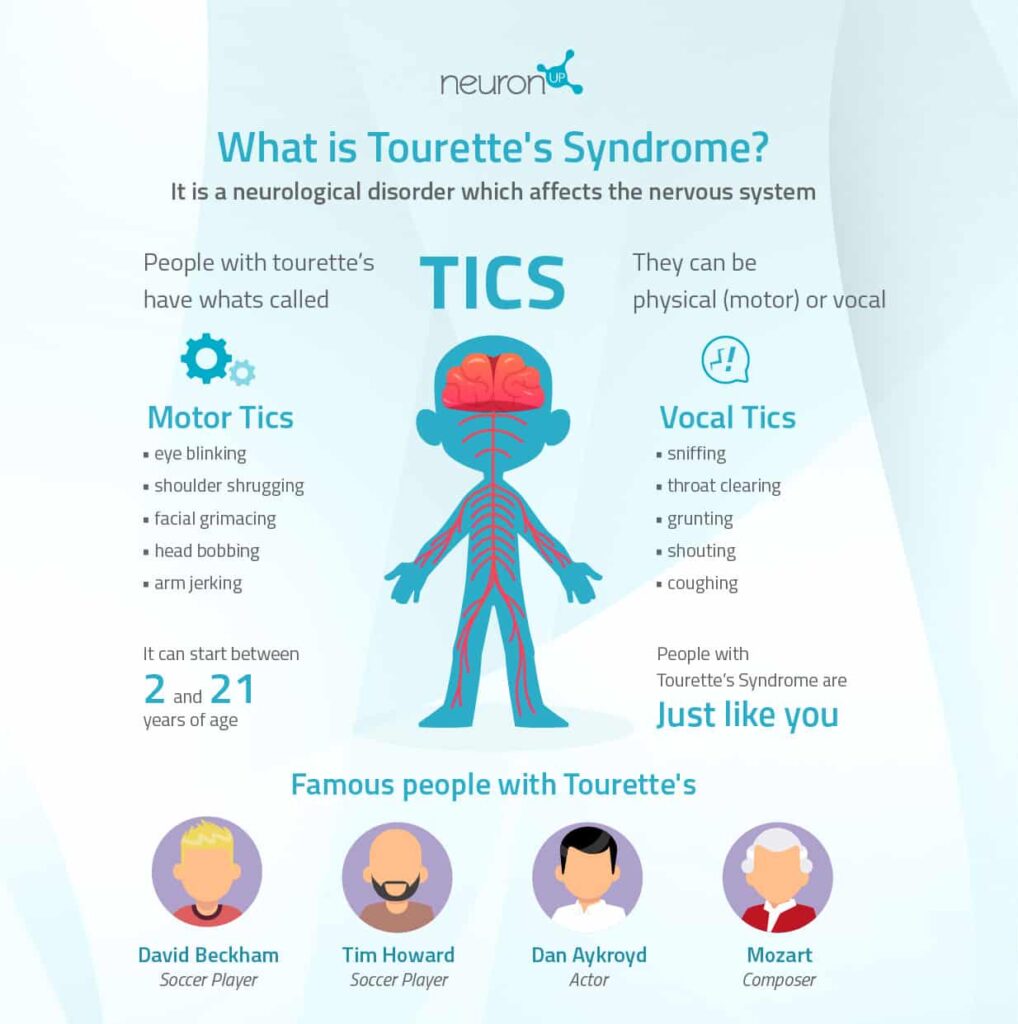Tourette syndrome is an inherited neuropsychiatric disorder with onset in childhood, characterized by tics – involuntary, rapid, sudden movements or vocalizations that occur repeatedly in the same way. The disorder is named for Georges Gilles de la Tourette, the pioneering French neurologist who first described it in 1885.
The severity of symptoms can vary widely from person to person. Some people with Tourette syndrome have only a few mild tics, while others have more severe tics that can interfere with daily activities. In addition to motor and vocal tics, people with Tourette syndrome may also experience Obsessive Compulsive Disorder (OCD) and Attention Deficit Hyperactivity Disorder (ADHD).
There is no cure for Tourette syndrome, but there are treatments that can help lessen the severity of symptoms. Medications such as antipsychotics and antidepressants may be prescribed to help control tics. Behavioral therapies such as habit reversal training (HRT) can also be helpful in teaching people how to manage their tics.
While Tourette syndrome can be a challenging condition to live with, many people with the disorder go on to lead successful lives. With proper treatment and support, most people with Tourette syndrome are able to achieve their goals and reach their full potentials.


